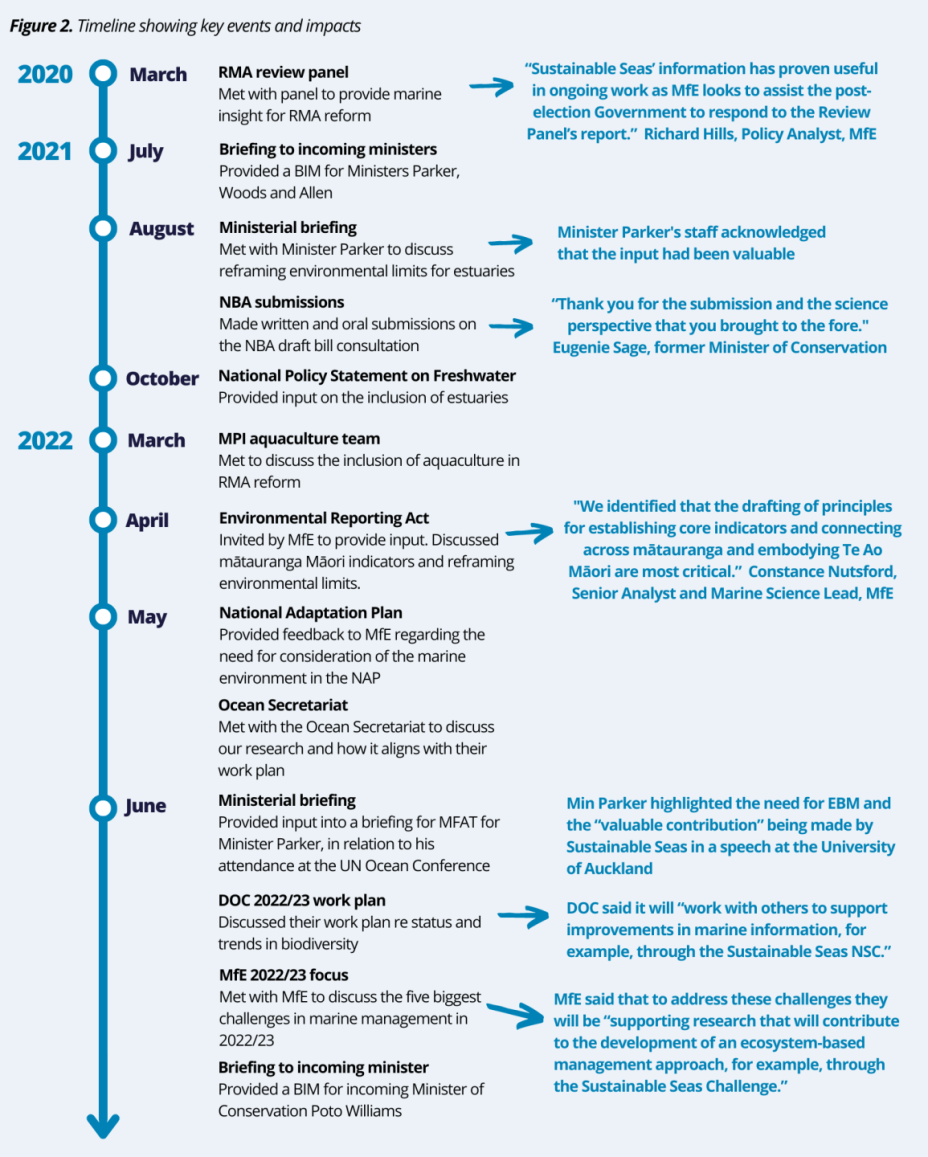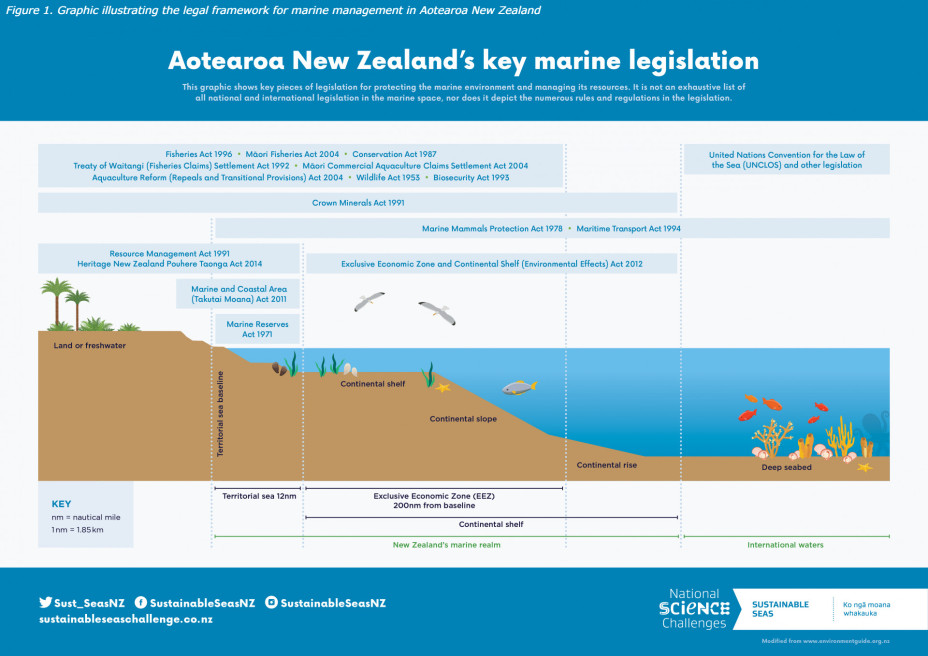- Summary
Influencing environmental policy
This impact case study describes how research into ecosystem-based management is helping to shape environmental legislation (August 2022)
There are at least 20 pieces of legislation in Aotearoa New Zealand that apply to our marine environment, making it a complex area (see Figure 1).
One of the primary goals of the Sustainable Seas Challenge is to influence reform of environmental policy and legislation to improve marine management. With 75 projects now completed, a key part of our mahi is drawing together the knowledge gained from collaborative research and sharing our feedback and recommendations with policy makers, end users and practitioners in a clear, accessible and timely manner.
Below are examples of how our input has influenced environmental legislation between 2020 and 2022. (See Figure 2 for a timeline showing key events and impacts.)
Resource Management Act (RMA) reform
The Natural and Built Environments Act (NBA) will be one of two acts replacing the RMA. We made both written and oral submissions on the draft bill, which were positively received.
Several of the issues raised in our submissions, such as those around limit setting, interactions with other legislation, and the need for local participation in decision-making, were subsequently identified by the Select Committee and included in questions they sent to the Ministry for the Environment (MfE).
We also met with the MPI aquaculture policy team to discuss how our research could inform the open ocean aquaculture regulations and the inclusion of aquaculture in the RMA reform.
Environmental Reporting Act (ERA)
Sustainable Seas researchers were invited by MfE’s Environmental Reporting Group to provide input to the ERA. We provided feedback regarding the inclusion of Te Ao Māori, mātauranga Māori, and establishing core environmental indicators. Based on our feedback, the reporting group identified that the drafting of principles for establishing core indicators, connecting across mātauranga and embodying Te Ao Māori were critical.
Ministerial briefings
We provided briefings to ministers Parker, Allen, Woods and Williams, and have had ongoing engagement with David Parker as the Minister for Oceans and Fisheries. We have discussed our research with a specific focus on estuary management, including why setting national limits for estuaries is not appropriate. We provided input into the briefing on Sustainable Seas for Minister Parker’s attendance at the UN Oceans Conference, detailing key marine issues.
Minister Parker consistently mentions the need for ecosystem-based management (EBM), including in his speech on World Ocean Day, where he also referenced the “valuable contribution” being made by Sustainable Seas.
Following discussions with Minister Parker and MfE, and user testing with Regional Councils, we have developed guidance on Reframing environmental limits for estuaries to inform policy. User feedback has been positive.
Central government agencies
Engagement with central government is a critical step for influencing policy and legislation. Through our regular meetings with the Department of Conservation (DOC) and MfE, central government acknowledge the need to work with us in response to questions around addressing challenges in the marine environment.
In summary, our mission-led approach has resulted in research that is being translated into action.
Contact
Julie Hall, [email protected]
Research organisations
Sustainable Seas National Science Challenge

